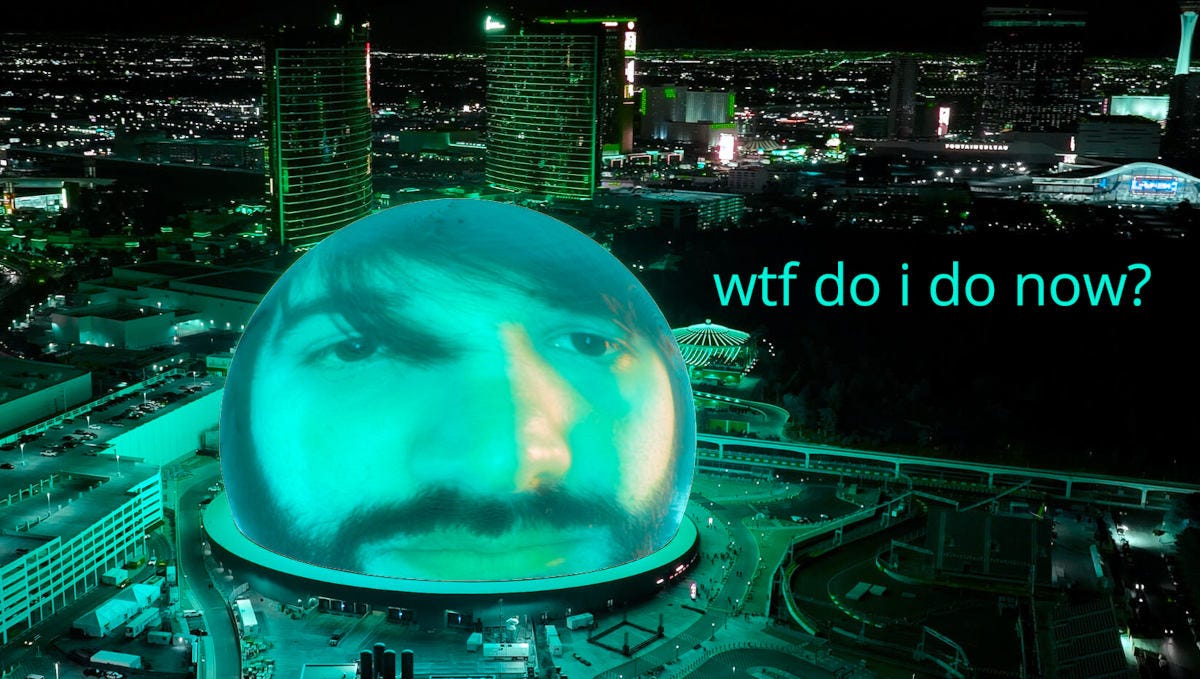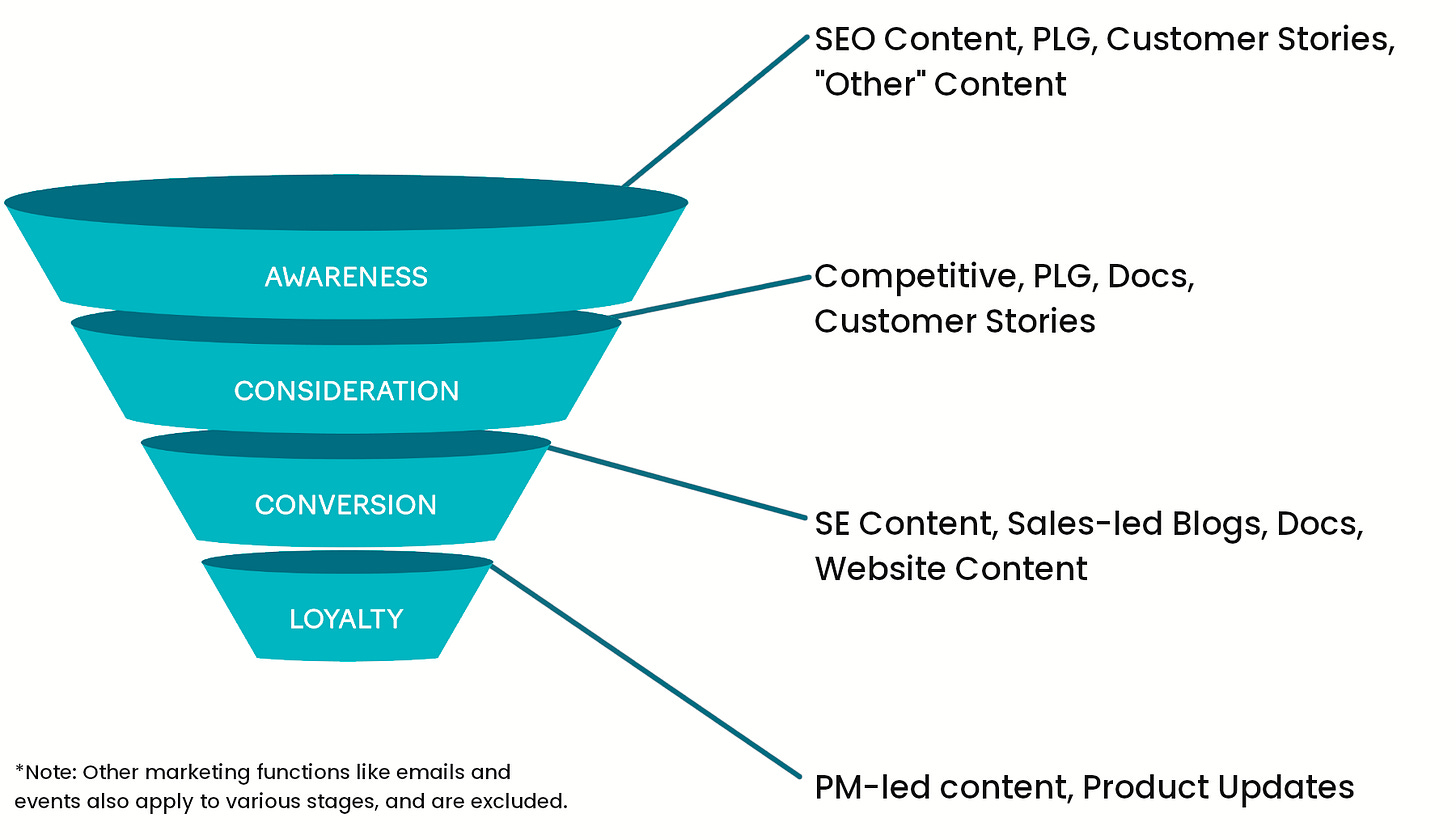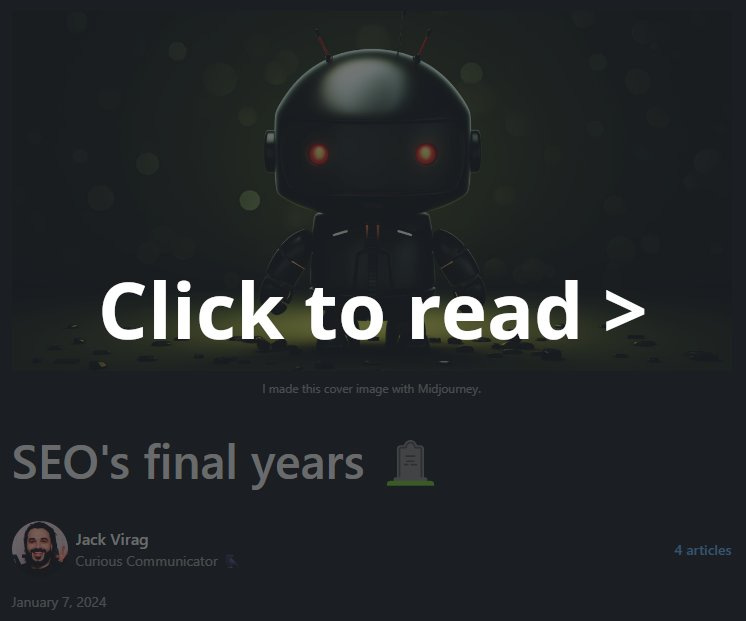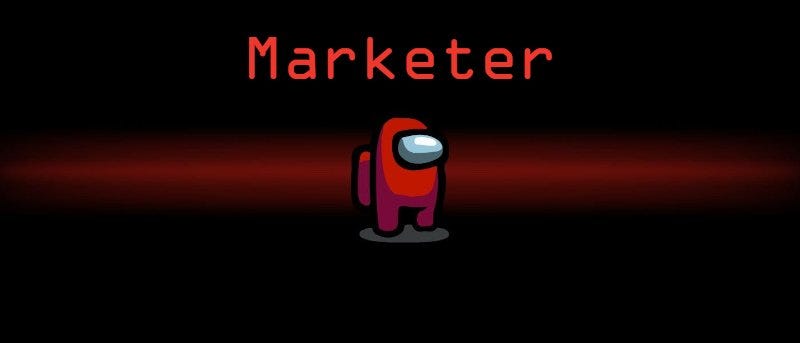How to get organic traffic to a Saas website
You've got a Saas, you've got a site, and maybe you've got budget for a marketer. What now?
A lot of exciting shit happens in the first few months of starting a Saas company.
There’s fundraising, there are presentations, you get to meet a lot of important people who are all thrilled to meet you and want to tell you all about where they envision you in five years, all that stuff.
After (and during) the exciting part comes the insane rushes of productivity: You burn through all your Figma mockups in a few sleepless nights. You trudge through lists of to-dos, and every commit feels like it’s doubling your app’s features. Life is great. But life moves quick.
You’re making good on the promises you made to your investors and interested parties regarding your development, but despite your product’s stickiness, users just aren’t finding you.
The walls aren’t closing in yet, but you’re now acutely aware of the fact that they can.
I know this place very well.
Why you really need organic traffic
I’ve had to say this in some way, shape, or form probably close to a hundred times.
Since this is not the topic of the post, I’m going to try to summarize it in bullet points. If you’re super intrigued by any of these, just ask me or check out any other articles on the topic.
Organic traffic is important because:
Lead gen
Paid traffic doesn’t scale
Organic traffic is a good measure of company health
Success compounds
Content that resonates can inform your early roadmap
Organic ultimately carves out your space in the Saas landscape
It’s a scalable way to grow your business and generate leads infinitely
In my opinion, inbound organic leads should ultimately comprise ~80% of total leads in the pipeline. Ideally, your Saas salespeople should focus more on customer success and account-based attention than cold calls and cold emails.
Building a content roadmap
“I call it a roadmap, not a backlog.”
Content is what attracts users to your site, regardless of what form it’s in. It’s a broad term that can mean anything, but mostly:
Web pages
Blogs
Documentation and guides
Video tutorials
Marketing videos and ads
Social media
The top three are the safest bets for any B2B Saas company starting out. B2C, on the other hand, is more varied and largely depends on your product and who it serves. Like, many skeletal B2C brands can subsist almost entirely on Instagram ads.
“Roadmap” is a bit of a fancy term for what you need right now. Your first roadmap should be an ordered list of topics to write about, and should cover all aspects of the funnel somewhat evenly, with an emphasis on the higher levels.
This is what a marketing funnel looks like:
If you have users, content creation is easy: Literally ask them. (If you don’t have users, stay tuned: I’m writing about how to get your first users soon.)
One of my favorite marketing founders and good friend Brendan Hufford calls this the 3S strategy: Sales, Support, and (Customer) Success need to be leading your content roadmap if you want to scale.
The “3S strategy” for Saas content sources
Thanks, Brendan!
The sales team:
Can tell you which questions are asked most frequently during calls with customers and prospects
Knows how to answer these questions in a way that truly showcases your Saas’s value
Will tell you the biggest pain points that prospects have
The success team:
Can describe how your Saas has helped users (or is in the process of helping)
Should give exact details about how you alleviate pain points (ie “replaced X tool and Y process, netting Z%”)
Gives additional social proof by showcasing healthy users of your Saas
The support team:
Gives the nitty gritty details about which features are most used, which ones users don’t like, which helps you determine what messaging to prioritize
What about SEO?
As a former SEO strategist, trust me when I say that the biggest marketing mistake that early Saas founders make is overindexing on SEO.
Search engines are meant to be proxies for human behavior. If your content strategy appeals to Googlebots but not humans, you’re going to lose. If it appeals to humans, you’ll win—provided Google does its thing properly.
Consider this: High-quality content that is written solely to inform, help, or even entertain, will naturally rank on search engines as long as it’s not completely all over the place. (Try it!)
Yes, you’ll still need to have a healthy site, and you’ll still need to do the basics like using the keyword enough in the copy, having headings that make sense, stuff like that. But that’s it, there’s no reason to overthink it.
The best way to think about SEO in 2024 is to consider it one of several tactics at your disposal. For instance, seeing which terms your competitors rank for, or seeing what terms are related to your own Saas features, and then prioritizing those.
To avoid going into too much detail, I’ll leave a link to a LinkedIn Pulse article I wrote that explains why SEO is dying, and what to focus on instead. 👇
The roadmap v2
Over time, your Saas content roadmap will evolve.
While the 3S strategy will always be your go-to for creating new organic inbound traffic, you’ll find that new opportunities emerge as your company grows.
In general, you (and whichever marketers you hire) should be measuring your content’s effectiveness regularly, and elaborating on topics and themes that generate demand.
What type of marketer should I hire?
All the most impactful marketers are content-focused rather than strategy-focused.
Marketing is tough to hire for. A lot of marketers are great at marketing themselves but won’t be great at marketing your Saas product—and it’s so important that you figure this out before hiring them!
I’ve been disappointed by a lot of marketers—and I may or may not have firmly declared “90% of marketers are imposters” on a podcast once. If I did say it, I didn’t mean it, but it’s something that makes me really angry, especially when I talk to Saas founders who’ve been burned by marketers.
Where marketers fall short
Going deep on tech
The biggest difference between a successful marketing hire and an imposter is that a successful marketing hire is going to learn everything about your product so that they can communicate it effectively.
If you think I’m being ridiculous, go ask one of your marketing friends to give you a demo of their company’s Saas product. 😬
Marketers aren’t just inherently shitty. Generally speaking, the moment someone asks for a demo is the moment they become a marketing qualified lead, which means that they’re ready to be shipped over to a salesperson. There’s not much reason for marketers to learn much beyond this. And many don’t.
Unimaginative playbooks
Another bias that marketers tend to have is that what worked at their previous company will work at yours.
Again, this isn’t particularly irrational, but this dogmatic nature often causes marketers to be ineffectual when the outcomes of their strategies aren’t as promising as they were at a larger company.
The idea of being a startup marketer is to embrace starting from scratch and finding new avenues of success. Past successes aren’t necessarily a blueprint.
Difficulty pivoting industries
Lastly, it’s tough for marketers to pivot in the Saas space. If you look at a Saas marketer’s work history, you’ll find that industry switches are somewhat rare.
Marketers at a customer success Saas, for instance, will gradually become experts in the space. They’ll understand the ins and outs of each Saas competitor, what personas exist within the space, how to sell to them, which types of content resonate, etc.
It’s not easy to leave all that behind and learn it all over again.
What to look for in your first Saas marketing hire
A lot of this is covered elsewhere, so this is my own spin, from experience.
Positive traits:
Has ties to tech in their personal life
Is irrationally obsessed with publishing and/or content
Displays genuine enthusiasm when talking about past wins
Communicates plainly and humanly
Enjoys doing one-offs that don’t scale just to overjoy a customer
Can give you a Saas demo(!!!)
Has opinions on weird niche shit like em dashes or sentence case
Believes in your company’s mission even if they weren’t sitting here trying to get a job from you!
Red flags:
Is dogmatic; “But this is how X is always done 🗿”
Wants to install a replica of their existing marketing program
Exists in a less techy Saas space
This can work out, just be sure to vet for it
Talks about strategy a lot
Bonus: Elects to use the larger versions of words when their shorter counterpart would suffice
I meme about “strategic” marketers a lot, but there’s a reason for it: At larger companies, there are marketers whose day-to-day activities mostly involve looking at dashboards and making judgment calls (aka “dial-turners”), with some project management and marketing flair mixed in as well.
This archetype is entirely different from the individual contributors that are responsible for the execution that causes the dashboards to even have data in the first place. The former archetype is usually higher-ranking, higher-paid, and thinks they possess enough execution to be an individual contributor as well.
Sometimes, they’re right; other times, they tank your Saas startup. Just be careful.
Replacing marketing with AI
The TLDR is that AI doesn’t “throw the punches” a good marketer can, but it can assist a lot.
As of writing, it’s 2024, and AI is the hottest trend. A reported 35% of companies use AI in some way, and it’s only going to grow more. In fact, there’s an entire category of Saas solely devoted to AI-assisted marketing content.
Is it viable? TBD.
Even the famous “I used AI to pull off an SEO heist” meme came to a sad yet very obviously inevitable end, and that story doesn’t include how successful they would’ve been if they had just used a regular marketer and not tricked Google.
And while Google’s policy around AI recently clarified that AI-assisted content is allowed, all of their updates are themed around “helpful content,” meaning novel and helpful insights. The writing’s on the wall.
However, using AI to write content is probably the worst question to even be asking. Your Saas company is a sportscar and your content is the tires—the little patch that connects you with the road, your audience. It has to be high quality and refined to a degree.
AI can help literally everywhere else though. It just shouldn’t be a substitute for original insights, writing, and messaging.
Some reasonable marketing tasks AI can do:
Create images
Make social media posts
Copy assistance: Outlines, themes, angles, light writing
Marketing code: Embeddable HTML and CSS for your site
Marketing exercises like identifying personas based on data
Strategy help (ironic, right?)
Etc
How long before I get results?
Most people say it takes 6-12 months to get serious results from content.
If you’re starting from zero, this number is pretty much correct, but you’ll get signal from the mini wins along the way.
The most important thing to remember is to create content that answers questions (outlined in the 3S strategy above), so that people who might need your Saas product will organically find you.
Results will vary, though. It’s important to set up decent tracking specifically to see which medium is landing the most first-user sessions. It’ll probably be blogs, but keep an eye on it. If your docs are outperforming, give them the priority they deserve (as long as you come back to your blog later).
It’s also important to make sure you have a healthy site that will pass Lighthouse checks, is easy to navigate, has good messaging, and a lot of ways for users to convert, etc. More on this another time.
Ways to speed this timeline up
Create content in collaboration with experts who can share it from their networks.
Leverage your existing users to focus on customer stories and customer-focused wins: “How X Company increased these metrics using our Saas product.”
Interact with your users regularly through content and share it with them, especially when it’s based on their use case or insight.
Try different things! Denny’s was using the F-bomb on Twitter way back in 2013. Just a thought.
Good luck!







Header image 👌